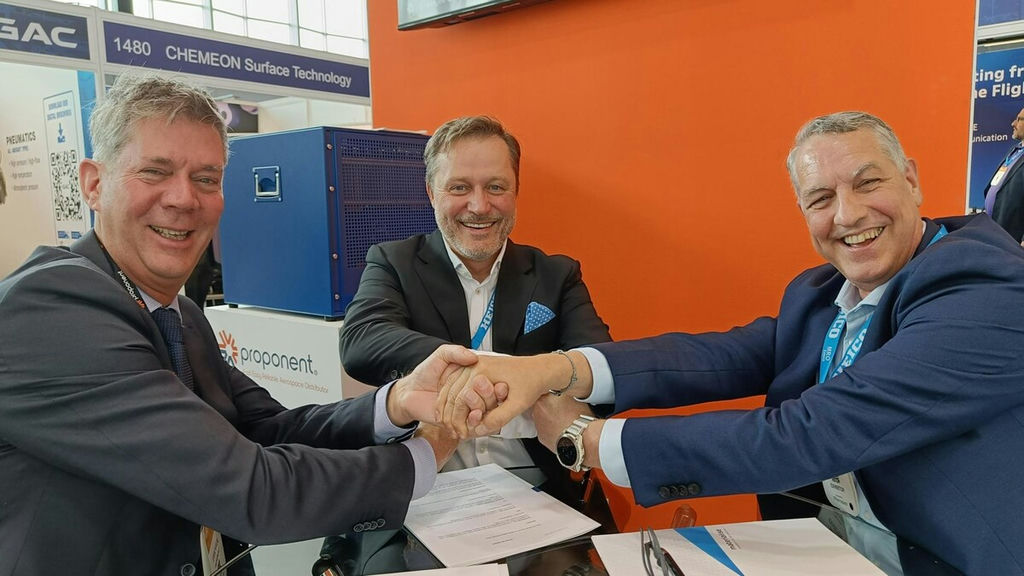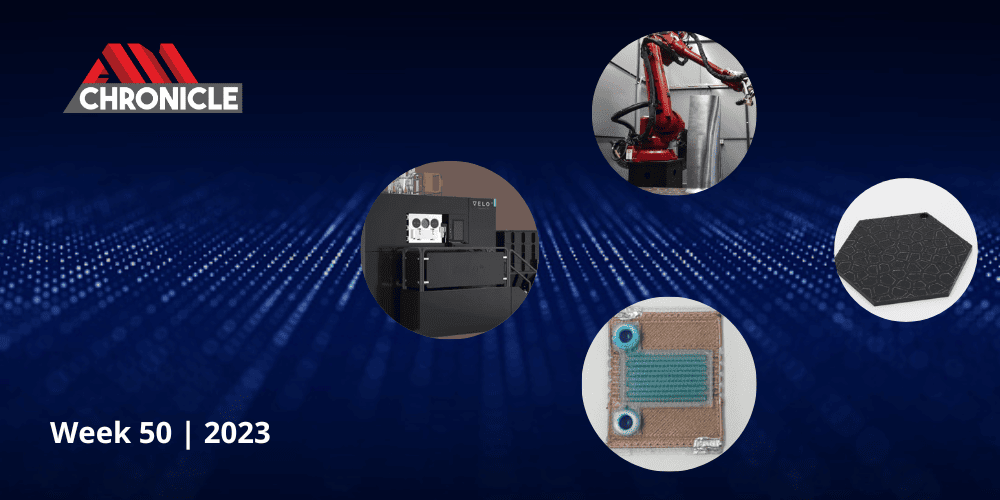The round-up of last week’s additive manufacturing news includes signing of Letter of Intent between Materialise, Proponent, and Stirling Dynamics on providing certified 3D-Printed Cabin Solutions; MOU between Spare Parts 3d and NCAM; Oak Ridge National Laboratory prints first large rotating steam turbine blades; MIT Scientists develops 3D printed self-heating microfluidic devices and much more.
Materialise NV, Proponent and Stirling Dynamics have announced the signing of a letter of intent (LOI) aimed at providing certified cabin solutions for aircraft. Together, Materialise, Proponent, and Stirling Dynamics aim to accelerate the adoption of 3D printing for cabin parts. Through the identification and design of smart 3D-printed solutions for OEMs, airlines, and MROs, this partnership seeks to give airline customers the possibility to easily leverage the unique manufacturing benefits 3D printing offers.

SP3D and NCAM signed a cooperation agreement that will lead both organizations to work closely to enable adoption of digitalization of inventory for companies using additive manufacturing technologies in India.
Oak Ridge National Laboratory first to 3D-print large rotating steam turbine blades
Researchers at the Department of Energy’s Oak Ridge National Laboratory became the first to 3D-print large rotating steam turbine blades for generating energy in power plants.
Protolabs Introduces New Textured Surfaces for Prototyping & Series Production
Protolabs, a global leader in technology-based digital manufacturing, has introduced a new service that provides even more surface finish choices for product developers, innovators and manufacturers.
MIT Scientists 3D Print Self-Heating Microfluidic Devices
MIT researchers have used 3D printing to produce self-heating microfluidic devices, demonstrating a technique which could someday be used to rapidly create cheap, yet accurate, tools to detect a host of diseases.
Wichita State, NASA lead research for improved in-space manufacturing plans
Wichita State University will lead a three-year project to assist NASA’s manufacturing paradigm shift from “factories on earth” to “factories in space.” “This project will pioneer a new in-space manufacturing technology based on electrospinning,” said Dr. Wujun Si, assistant professor in WSU’s College of Engineering. “It will significantly overcome some fundamental challenges faced by the current ISM technology based on additive manufacturing.”
Velo3D, announced that Atomic Industries, a creator of artificial intelligence-powered manufacturing solutions, has purchased a fully integrated metal additive manufacturing solution to provide its customers with 3D printed tooling and dies
Subscribe to AM Chronicle Newsletter to stay connected: https://bit.ly/3fBZ1mP
Follow us on LinkedIn: https://bit.ly/3IjhrFq
Visit for more interesting content on additive manufacturing: https://amchronicle.com


